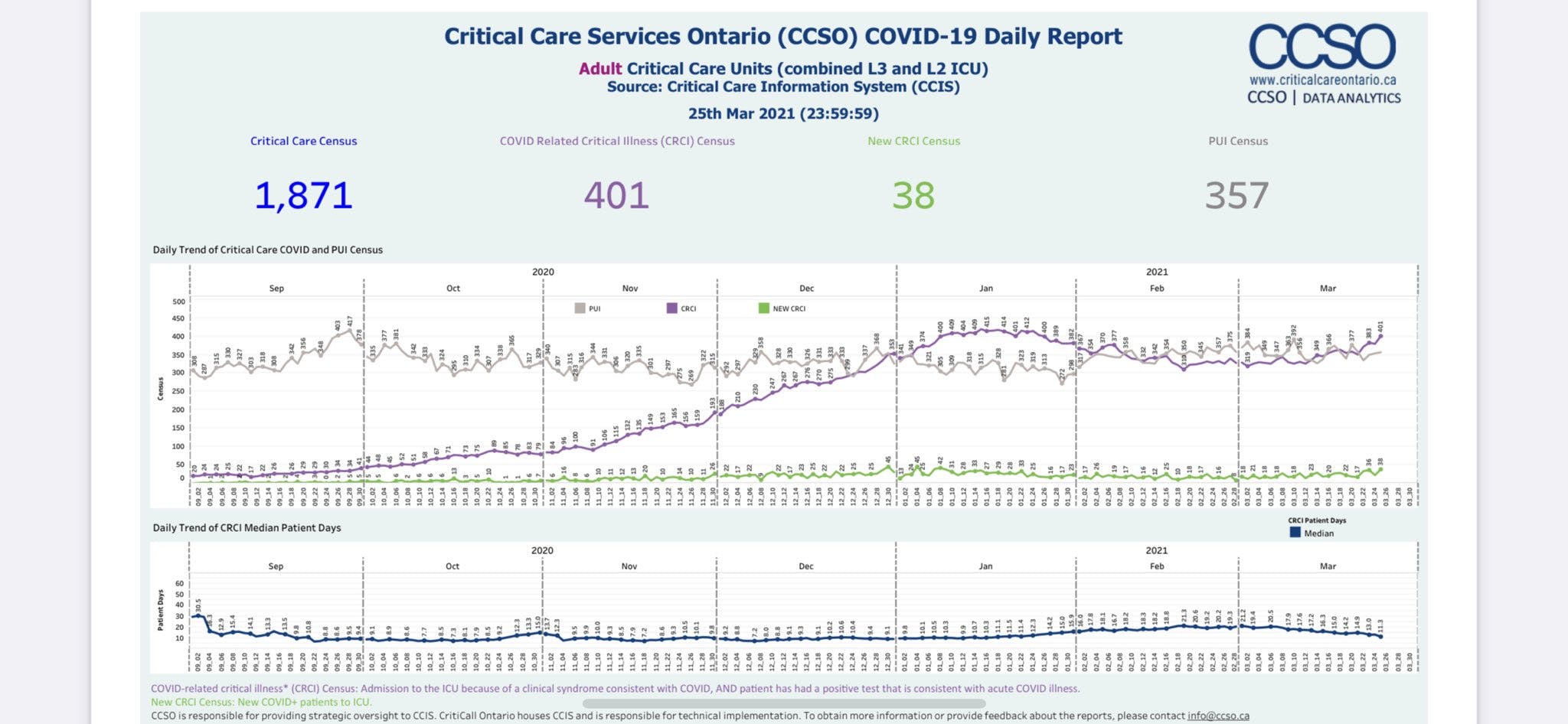This post is from our archives and not all features will display correctly.
Rising intensive care occupancy prompts concern Ontario will implement triage protocol, limiting critical care
Triaging in ICUs would see patients prioritized based on their likelihood of surviving the next year.
Published Mar 26, 2021 at 2:17pm

Read this for free.
Log in below to get access to this article. One free per week.
